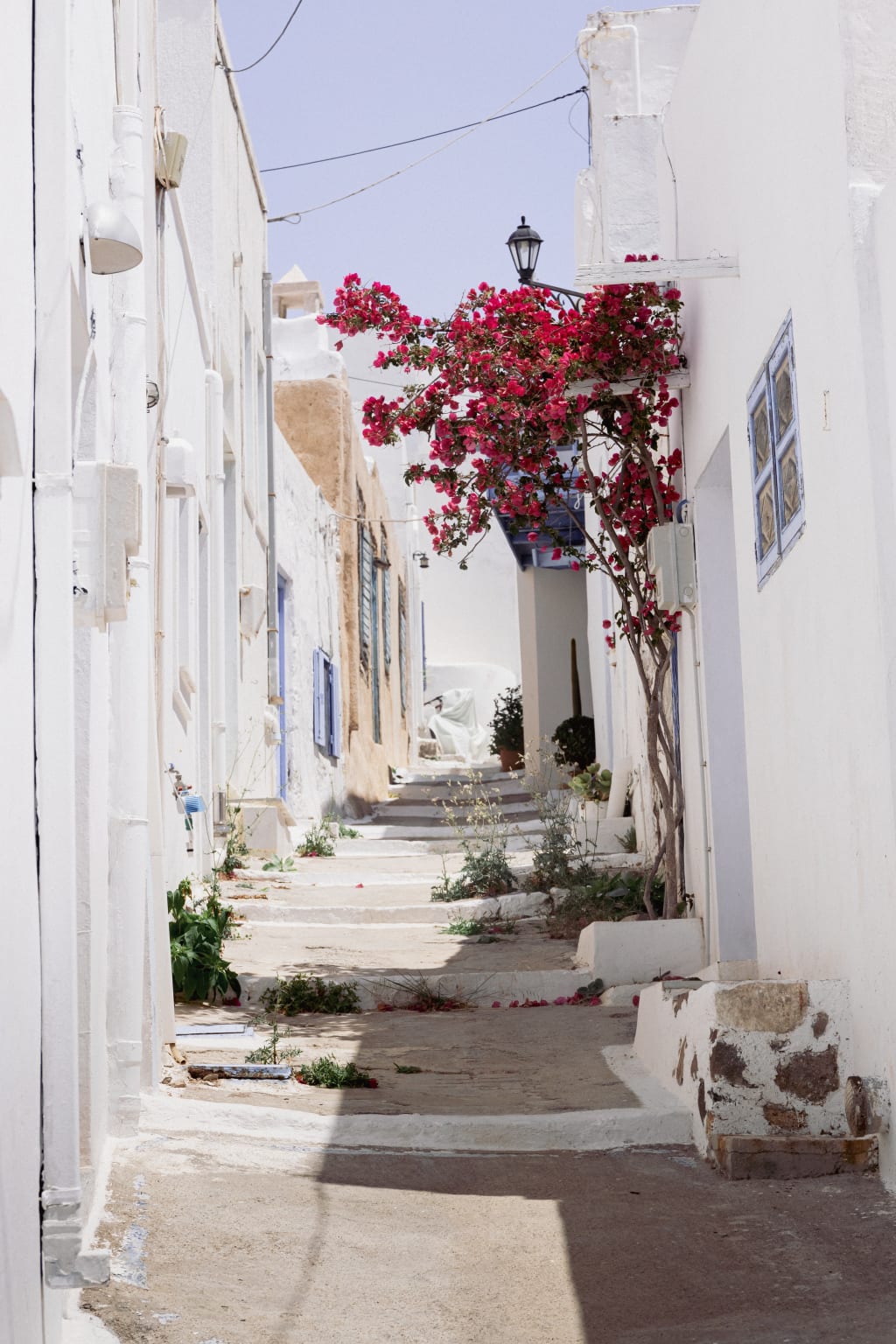Rousseau who was obsessed with telling the truth
Rousseau who was obsessed with telling the truth

June 28, 2012, would have been Rousseau's 300th birthday. In his birthplace of Geneva, Switzerland, where his writings were burned and he was expelled, the city hall is now honoring the "citizen of Geneva" with a year-long celebration under the slogan "Rousseau for All."
For more than two centuries, people have debated the magnitude of his positive and negative influences. The only thing that is undisputed is that he had a profound impact. France, England, Italy, Russia, the United States, Japan... He is remembered in many ways.
In China, in addition to academic symposia commemorating Rousseau and commemorative articles in the media, there will be a Chinese translation of Rousseau's works and a nine-volume Complete Works of Rousseau, translated by Li Pingdou, an 88-year-old French translator and expert on Rousseau.
Rousseau man
Jean-Jacques Rousseau (1712 -- 1778) was a thinker, philosopher, writer, and educator who left deep footprints in the fields of political philosophy, literature, education, ethics, religion, and cultural anthropology. The important thinkers of his time -- Voltaire, Diderot, D 'Alembert, Hume, and other "lonely ramblers" from friendship to quarrel and finally break up one by one; The father who wrote the great pedagogical classic Emile, only to leave his five children at birth at the gate of an orphanage; Persecuting schizophrenics, maniacs who are considered geniuses or geniuses who are considered maniacs...
The easy access to Rousseau's life, including its secret details, is largely due to him. In his autobiographical works Confessions, Dialogues: Rousseau's Judgment on Jean-Jacques, and Reverie of a Solitary Rambler, he gave the world a wealth of information about himself.
A clockmaker family was born in Geneva, her mother died after he was born that is ten years old when his father because of a dispute with people escape from Geneva, he was sent to the countryside for two years, done after the court reporter "the litigants" contracting and parts carve division apprentice, picked up a bad habit lie inactive theft and so on, often beaten, to avoid the teacher's punishment to flee at the age of 16, In the following twenty years, I have been a servant, an attendant, a governess, a secretary... Remain anonymous.
It was not until 1749 that Rousseau submitted an essay entitled "On Whether the Revival of Science and Art Can Help to Make Customs Simpler and Simpler". The following year, the essay won the prize and was published. At the age of 38, Rousseau became famous.
After that, in 1752, Rousseau's opera "The Village Divinity" was a great success. Louis XV was willing to summon him and give him an annuity, but fearing that he would lose his freedom, Rousseau avoided the king's summons; In 1755, his paper on the Causes and Foundations of Human Inequality was published, in which Rousseau described the happiness and peace of human beings in the original state of nature, as well as the inequality brought by the establishment of private ownership and the advent of civilization. Voltaire called the book "a new book against humanity." In 1761, the epistolary novel New Heloise was published, which was a sensation, especially among female readers. In 1762 The Social Contract and Emile were published. In Paris, in the same year, the Supreme Court issued an injunction to "love" son ", outgoing messages to arrest the author, Rousseau coming from Paris fled to Geneva, my hometown in Geneva burning of "love" son "and the" social contract theory "and ordered the author investigated, the 50-year-old Rousseau had to the eight years of exile journey, started writing during confessions; In 1770, at the age of 58, he returned to Paris pardoned and lived mainly by copying music. In the same year, the Confessions were completed. In 1775, the Dialogue was completed; In 1776, he wrote The Reverie of a Solitary Rambler. In 1778, at the age of 66, Rousseau died poor and alone.
Li Ping Retting, the translator of the Complete Works of Rousseau, said of him: "He was a very unfortunate man who had a very rough life. Every one of his books has been approved, why does he keep on writing? He had a famous motto: 'Dedicate one's life to the truth."
Rousseau it
In his works, Rousseau made no secret of his dishonorable side, such as he stole away when his friend was ill, framed a maid after stealing, changed his religion for a living, and maintained a loving relationship with Mrs. Warren, who was 12 years older than him, for more than ten years, and called her "mother"...
In the first paragraph of his Confessions, Rousseau declares: "I am now engaged in a difficult task which has no precedent and will never be imitated. I want to expose a person's true colors to the world. That person is me."
Writing a preface to the 1949 French edition of Confessions, the famous French writer Andre Moroia said: "There are very few writers who can say: 'Without him, French literature would have gone in a different direction. 'Rousseau is one of those writers." Rousseau's influence extends far beyond French literature. Tolstoy once said that he would never forget the hatred of hypocrisy and love of truth he felt when reading the Confessions, and Ba Jin said more than once, "Rousseau, the author of the Confessions, was my first teacher in telling the truth."
Today, Rousseau is known more for his political ideas and related works such as The Social Contract. Once upon a time, the skies of Europe and other revolutionary places echoed his famous words: "Man is born free, but he is in chains."
"I would like to inquire whether, in the social order, there can be some legal and definite rule of power, in the light of the actual human condition and the possible situation of the law." Rousseau begins by saying this in Book I of the Social Contract. The starting point of his thinking is practical rather than merely theoretical.
But when its faithful Robespierre to Rousseau's thoughts according to own understanding is applied in practice, the "walk of Rousseau" seems to be in grand solemn and stirring experiments, disproving the defects of Rousseau's philosophy, also let Rousseau has since been frequently needing to be responsible for the atrocities of the French revolution, and even responsible for the dictatorship of nazism.
"Sovereignty rests with the people", "the right to revolution", "the will of the public", and "virtue"... Up to now, readers from different paths of Rousseau's thought still have a great contrast in understanding. He is sometimes seen as an individualist and a liberal, sometimes as a collectivist and a totalitarian, or simply as a man whose ideas are ambiguous and full of contradictions, or as a man whose ideas are unified but easily taken out of context and misunderstood and exploited...
In China,
Rousseau has a long history with China. In 1878, Guo Songtao, China's first envoy abroad, wrote in his diary about the deeds of "Le Su" (Rousseau), which he had heard about, and is considered the earliest Chinese record of Rousseau. On the eve of the 1898-1898 Reform Movement, the Shanghai Tongwen Translation Bureau published "Minyue Tongyi" (Social Contract Theory), which is the beginning of Rousseau's works in China. Over the next hundred years, Rousseau's major works have been introduced and new translations have been published. Today, more than 20 Chinese translations of the Social Contract alone can be found. "Translations of a foreign author's works have rarely been published in China for more than a hundred years," said Li Ping.
During the spread of Western learning to the East, Rousseau's ideas had a great influence on modern China. At the beginning of the 20th century, all progressives talked about freedom and equality and natural human rights, and they always referred to Rousseau. Just as an article in Su Pao said at that time, "Rousseau's Treatise on the People's Treaty is coming east in a fierce and unrestrained fashion!"
Just as Rousseau's works had an impact on Europe and Japan, Chinese intellectuals who advocated revolution to save the country found their belief and basis in Rousseau's books. Zou Rong, in The Revolutionary Army, directly refers to Rousseau's ideas as "a medicine for reviving the dead and a treasure for reviving the soul." Sun Yat-sen said that although Rousseau's claim that he was "endowed with human rights" had no historical basis, his initiation of civil rights was "a great political achievement of the ages." Rousseau had been warmly sought after in China several times. Until about the 1990s, the academic circle began to reflect and criticize Rousseau's thoughts.
Review of Rousseau's plight in China, Beijing university of aeronautics and astronautics higher institute of humanities and social sciences, western political philosophy and law philosophy research scholar Gao Quanxi said he felt a "love-hate relationship", "Rousseau's thoughts of idealism, his pursuit of justice, the longing for equality, turneth the edge of criticism and inner richness and so on, You could say that the human soul is capable of all these things rolled into one. His pursuit of equality, justice, and pure heart is indeed beautiful and human, but if you don't find the means to achieve it, it often leads to problems."
Li Meng, a professor of philosophy at Peking University, said: "Today, when we read any Western writer we like, we will not treat him as a cure-all for a while, as we did in the past, and a few years later, we will feel more peaceful. We need to combine ourselves to see what Rousseau's message can be helpful in the context of China and what can have a positive impact on our political system."
"If you wish us to understand each other, my good friend, you must be more careful with my words. Believe me, my words rarely mean what they usually mean; It has always been my heart that talks to you, and one day you may understand that it does not talk like other people." This is something Rousseau says in a letter to a friend, talking about his epistolary language, or it could be seen as a confession to the readers of his work.
Anyway, happy 300th birthday, Jean-Jacques Rousseau.






Comments
There are no comments for this story
Be the first to respond and start the conversation.